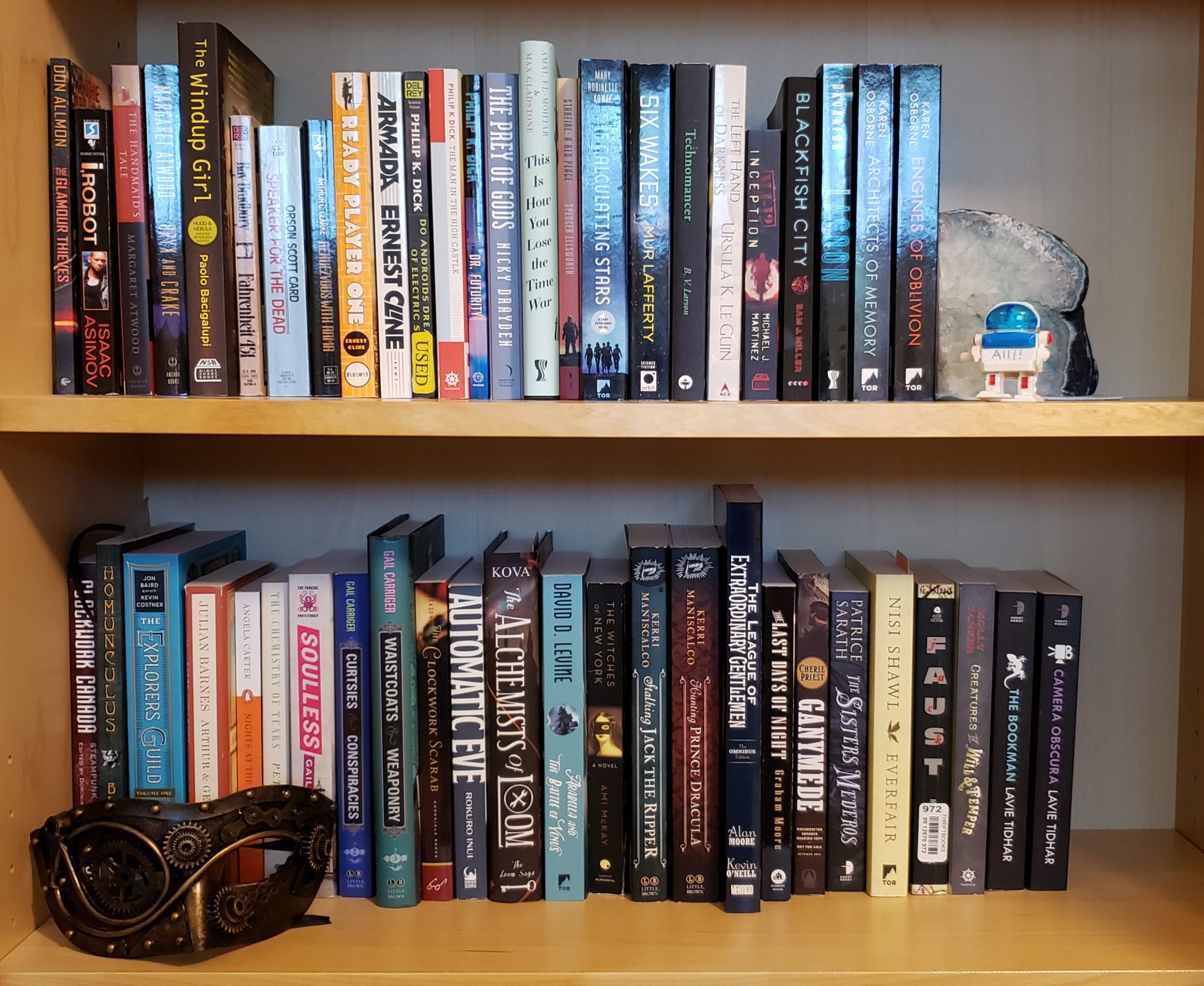Near the end of the month, I attended a virtual workshop with the Orange County Library called Putting the Sci in Sci-Fi, led by author and scientist Premee Mohamed. The workshop was an in-depth exploration of moving from sci-fi inspiration to story, but one of the things that stuck with me was something Premee said about what makes a science fiction story:
If the science fiction element can be removed without changing the story, the story isn’t science fiction.
Premee gave a story example to explain what she meant: the story premise is a couple splitting up. In the scene, the woman drinks from her cyber cup. If the only mention of the cyber cup is that it holds her coffee, there’s nothing science fiction about the story. You can remove the cup and the story is just about a couple splitting up. But if the woman is leaving because her cyber cup recorded the details of her partner’s affair, suddenly the cyber cup is integral to the premise and plot—now it’s science fiction.
That’s probably obvious to most readers of science fiction, but I think it’s an important element to interrogate whenever we’re writing. What makes your story science fiction? What makes your story fantasy? What makes it steampunk? What makes it romance? Is your story matching the expectations of the genre?
In one of my MFA workshops, a fellow student asked of my steampunk story if I was being limited by the constraints of the genre. Six years later and I’m still a little stymied by that question because I feel like it’s missing the point of genre conventions.
 Genres exist primarily as organizational and marketing tools and are one way for readers to find stories they’ll like and for stories to find an audience. (If you like this story about a robot, here’s where to find more stories about robots.) If the main task of a sci-fi story is to ensure the sci-fi element is integral to the plot, I wouldn’t call that a constraint, but it is a necessary element of the story.
Genres exist primarily as organizational and marketing tools and are one way for readers to find stories they’ll like and for stories to find an audience. (If you like this story about a robot, here’s where to find more stories about robots.) If the main task of a sci-fi story is to ensure the sci-fi element is integral to the plot, I wouldn’t call that a constraint, but it is a necessary element of the story.
All stories tend to share universal elements—plot, character, setting, theme—and they’re written using words, sentences, and punctuation. But once stories are separated by genre, unique elements are introduced, such as magic, robots, time travel, romance as the driving plot, monsters, a mystery—and those elements are what define the genre. Meeting those genre expectations means a story can be classified and marketed, and more easily find readers, which means that identifying the genre elements and making sure they’re integral to the story is essential to the writing process.
For many writers, you probably don’t need to make this genre check, but if something feels off in your fiction, it might be a good place to start your search.
For full access to The Write Life, sign up on Patreon for $1 or more per month. You’ll also receive a personalized thank you in a future edition of The Write Life.
